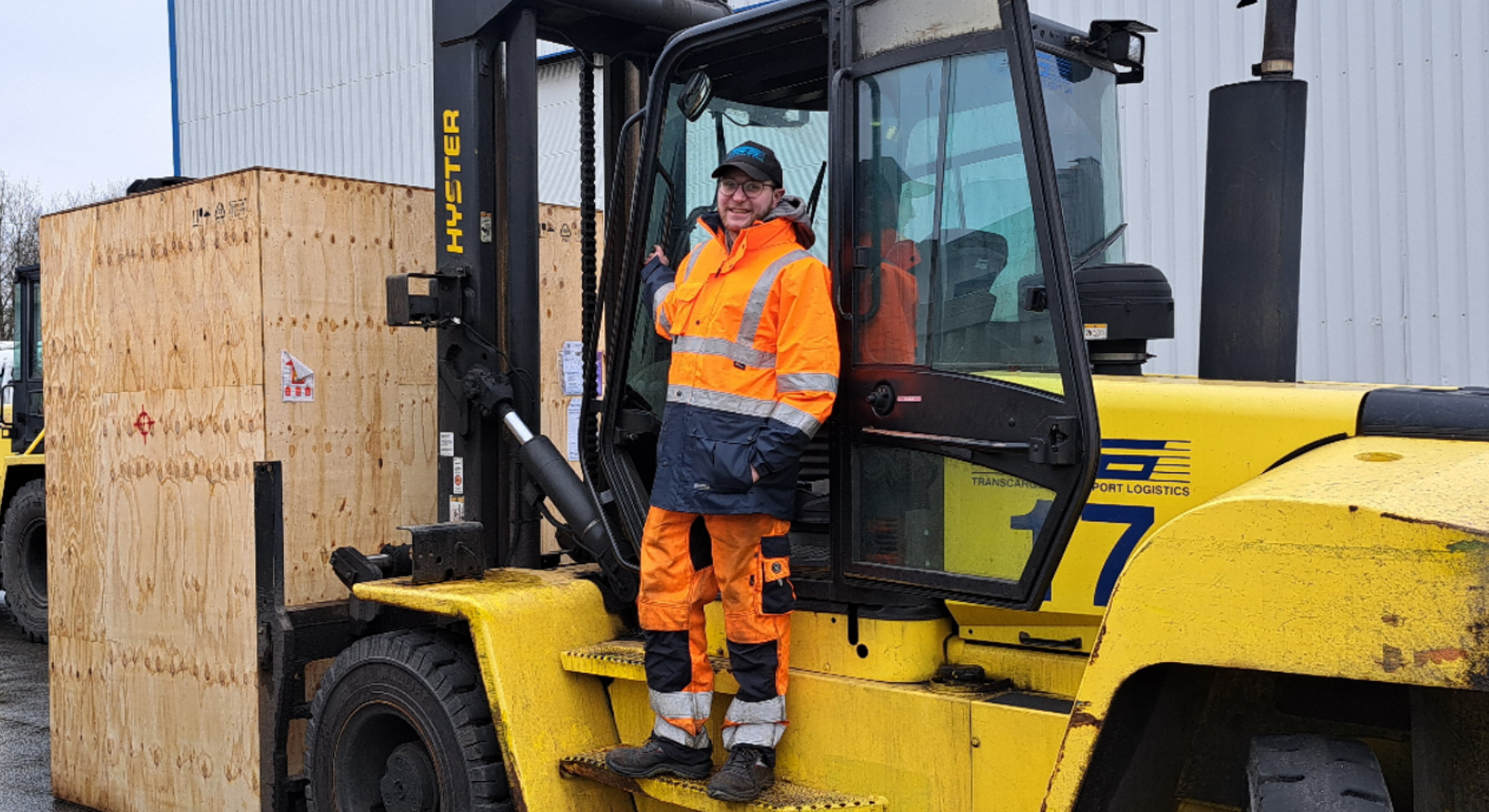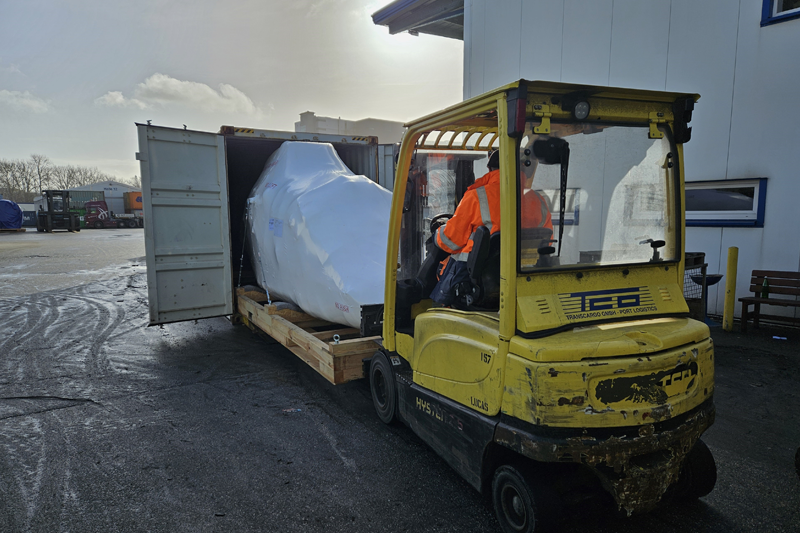Keeping the pulse of the times
ma-co, the training provider for the German seaports, offers a wide range of training programmes. The focus is always on the future. In the ...

If cargo stowing makes you think of the quay edge, you’d be right. But the stowing process for the standardised steel crates begins much earlier. It involves specialists like Lucas Böhme, who completed his dual training programme to become a port logistics specialist at TCO Transcargo four years ago. Since then, the now 26-year-old is one of 120 employees in the export area of the Hamburg logistics company, which is specialised in the loading and unloading of steel crates in addition to services in cargo throughput, storage and distribution in container logistics.

“When the staff of the Federal Employment Agency visited our school half a year before I graduated, they described the profession in more detail. I found it interesting,” Böhme recalls. He has always liked ships. “From Wedel, where I was born and raised, we would often be out on the river Elbe.” He applied, was invited to an interview and began in August 2016.
“I started with the basics: the first week covered delivery and getting to know the processes here,” Böhme explains. Unloading trucks is the easiest, he says. Once know-how regarding the wide range of goods has been established, further tasks are learned, such as measuring arriving goods, taking note of storage spaces for the goods and checking the markings.
Often, control duties also need to be handled, such as comparing specifications or port spaces. These are all commercial tasks that arise at the logistics interfaces.
Driving a forklift is likewise one of the responsibilities of a port logistics specialist and is taught during training. “You kind of have to find your way into it, but it’s the most fun for me,” notes Böhme. Following a medical check, the trainees are first instructed by the company. After starting with smaller machines at 2.5 tonnes, they can then progress to larger machines with a load capacity of 32 tonnes. Importantly: “You need to appreciate how much power they have,” stresses Böhme, who can now operate a forklift.
“I got my forklift licence after nine months,” the specialist explains. Despite the routine, challenges often arise: “It’s especially difficult when I have to drive into the container with the forklift.” With larger crates, you have to fiddle about to find how best to fit them through the door and how to manoeuvre. “I enjoy that because you have to think about it,” Böhme says.
He particularly likes the many different aspects involved in his job. “The work is very varied: sometimes I unload goods off a truck, other times I have to pack a container and think about how to best secure the crates and pallets inside.”
At the beginning, he would stack small containers, before moving on to medium and finally heavy containers. But he always needs to know how to stow the goods correctly – i.e. what can be stacked on top of each other, and what can’t. “Generally, easily stackable goods go on the bottom and light items go on top of heavy cargo,” Böhme explains. However, weight distribution is also important: “For instance, a heavy crate weighing several tonnes must go in the middle.”
Sometimes, stowing can be a tricky matter, for example when 40 different sized pallets need to fit inside one container, where some can be stacked and others can’t. “This takes experience and the ability to think spatially. It’s also like playing Tetris,” Böhme adds. If necessary, he can also ask a colleague with more experience, but ultimately only the trial-and-error method works, he says.
Especially at the beginning, a container may need to be unloaded again if a pallet can no longer fit inside. This is no problem for Böhme: “In that case, I pack the container again until everything is in place and securely stowed.”
Job description: Specialists for port logistics ensure smooth processes in cargo throughput at inland and coastal ports. They find out about incoming and outgoing shipments and organise the necessary throughput and transport equipment. They put together load units for further transport by ship, truck and rail. In order to optimise the use of available freight capacity, they determine the dimensions and weight of the goods and use this data to create stowing and loading plans. At the throughput point, they monitor the loading of shipments and unloading of ships, trucks and railway wagons. Their responsibilities also include checking the shipping documents and inspecting incoming and outgoing shipments for completeness, quality and any damages.
During throughput and storage, port logistics specialists ensure that the goods are handled correctly. In the office, they process shipping, dispatch and throughput documents, enter delivery data into the computer system and inform recipients, senders and transport companies about the arrival of goods.
Requirements: High school qualification or higher. Important school subjects: mathematics, English and other foreign languages, German and physics.
Soft skills: Interest in planning, organisation, calculation and communication as well as working outdoors in all weather conditions